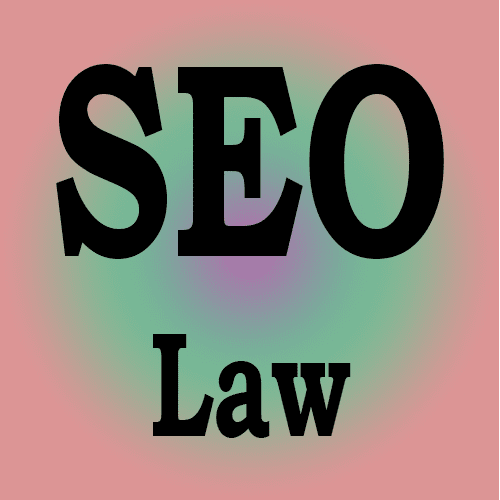Introduction
In the digital age, Search Engine Optimization (SEO) is a fundamental strategy for businesses aiming to enhance their online visibility and attract more customers. However, the implementation of SEO tactics can sometimes lead to legal issues and challenges, especially for law firms and businesses operating in regulated industries. This article explores the common legal issues that arise in SEO practices, providing insights into potential pitfalls and best practices to mitigate risks effectively.
1. Trademark Infringement
One of the primary legal concerns in SEO revolves around trademark infringement. This issue typically arises when a competitor uses another company's trademarked terms or brand names in their SEO strategy, such as in meta tags, keywords, or ad campaigns. Common scenarios include:
Keyword Stuffing: Using a competitor's trademarked terms excessively in website content or meta tags to attract traffic.
AdWords and PPC Campaigns: Bidding on a competitor's trademarked terms in pay-per-click (PPC) advertising without authorization.
Domain Names: Registering domain names that include a competitor's trademarked terms to divert traffic or create confusion.
To avoid trademark infringement issues, businesses should:
Conduct Trademark Searches: Before using any terms in SEO strategies, conduct thorough searches to ensure they are not infringing on existing trademarks.
Seek Permission: Obtain permission from trademark holders before using their terms in SEO campaigns or PPC advertising.
Focus on Own Brand: Emphasize the promotion of your own brand and trademarks rather than capitalizing on competitors' brands.
2. Copyright Violations
Copyright infringement is another significant legal issue in SEO, particularly concerning the use of content without proper authorization or attribution. Common examples include:
Duplicate Content: Republishing content from other websites without permission, which can lead to penalties from search engines and legal action from content creators.
Image Usage: Using images without obtaining proper licenses or permissions from the copyright holders.
Guest Blogging and Syndication: Reposting guest blogs or syndicated content without permission or proper attribution.
To mitigate copyright violations:
Create Original Content: Focus on creating unique and original content that adds value to users and avoids duplicating content from other sources.
Obtain Licenses: Obtain licenses or permissions for using copyrighted images, videos, or text from the rightful owners.
Attribute Properly: Provide proper attribution when using content under Creative Commons licenses or from guest contributors.
3. Privacy and Data Protection
With increasing concerns over privacy and data protection, SEO practices must also comply with laws and regulations governing the collection, use, and protection of personal data. Common issues include:
Data Collection: Collecting personal information from website visitors without adequate consent or in violation of privacy policies.
Cookies and Tracking: Non-compliance with regulations regarding the use of cookies and tracking technologies, such as GDPR in Europe or CCPA in California.
Third-Party Services: Using third-party tools or plugins that may compromise user data security or violate privacy policies.
To address privacy and data protection concerns:
Implement Privacy Policies: Clearly state how data is collected, used, and protected on your website in compliance with applicable laws.
Obtain Consent: Obtain explicit consent from users before collecting any personal information or using cookies for tracking purposes.
Secure Data Handling: Implement robust security measures to protect user data and comply with data protection regulations.
4. Deceptive Practices and Misleading Advertising
Search engines like Google have strict guidelines against deceptive practices and misleading advertising. Common issues include:
Cloaking: Showing different content to search engines than what is presented to users, which violates search engine guidelines.
Hidden Text or Links: Hiding text or links within a webpage to manipulate search engine rankings.
False Claims: Making false or exaggerated claims about products or services in SEO content.
To avoid penalties for deceptive practices:
Follow Search Engine Guidelines: Adhere to Google's Webmaster Guidelines and avoid tactics that manipulate search engine rankings.
Provide Transparent Information: Ensure that all information provided in SEO content is accurate, truthful, and transparent.
Monitor SEO Activities: Regularly audit SEO strategies to identify and rectify any deceptive practices or misleading content.
5. Local SEO and Regulatory Compliance
For businesses targeting local markets, compliance with local laws and regulations is crucial. Common issues in local SEO include:
Local Business Listings: Providing accurate and consistent business information across local directories and platforms.
Regulatory Requirements: Compliance with local advertising regulations and licensing requirements.
Reviews and Testimonials: Handling reviews and testimonials in compliance with consumer protection laws.
To ensure compliance in local SEO:
Update Local Listings: Maintain accurate NAP (Name, Address, Phone number) information across all local directories and platforms.
Understand Local Regulations: Familiarize yourself with local advertising laws and regulatory requirements that apply to your business.
Ethical Review Practices: Encourage genuine reviews and testimonials from clients while complying with regulations regarding solicitation and disclosure.
6. Accessibility Compliance
Accessibility compliance is increasingly important in SEO to ensure equal access to information for all users, including those with disabilities. Common issues include:
Website Accessibility: Ensuring websites are accessible to users with disabilities, such as providing alternative text for images and captions for videos.
Legal Requirements: Compliance with accessibility laws and guidelines, such as the Americans with Disabilities Act (ADA) in the United States or the Web Content Accessibility Guidelines (WCAG).
To improve accessibility compliance:
Implement WCAG Guidelines: Follow WCAG guidelines to make your website more accessible to users with disabilities.
Use Accessibility Tools: Use tools and plugins that assist in improving website accessibility and compliance.
Regular Audits: Conduct regular audits to assess and address accessibility issues on your website.
Conclusion
Navigating SEO while ensuring legal compliance requires a thorough understanding of potential risks and proactive management of SEO practices. By addressing common legal issues such as trademark infringement, copyright violations, privacy concerns, deceptive practices, local regulations, and accessibility compliance, law firms and businesses can mitigate risks, maintain ethical standards, and enhance their online visibility effectively. Embrace SEO as a powerful tool for growth while prioritizing legal compliance to build a strong and sustainable online presence in today's competitive digital landscape



